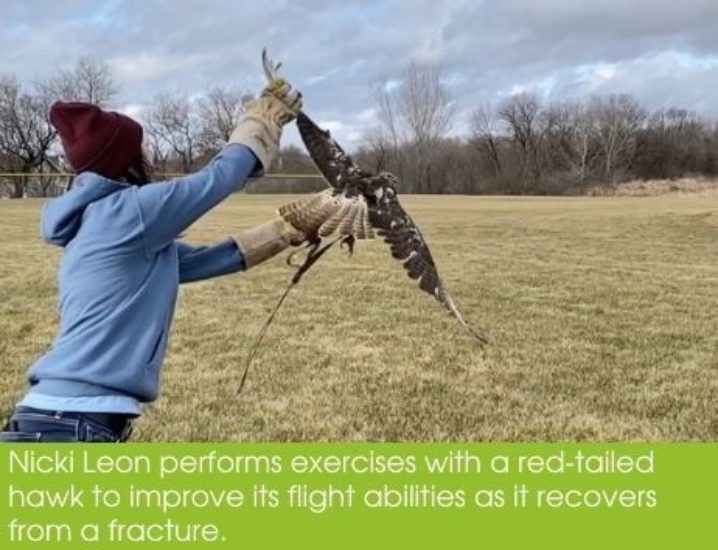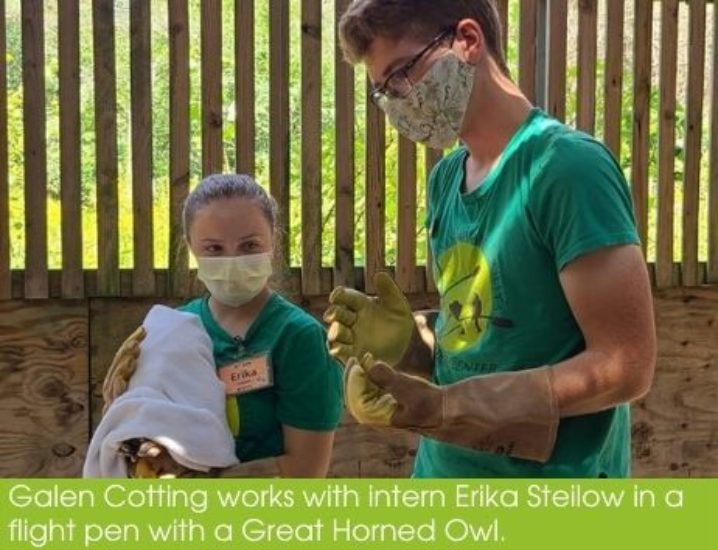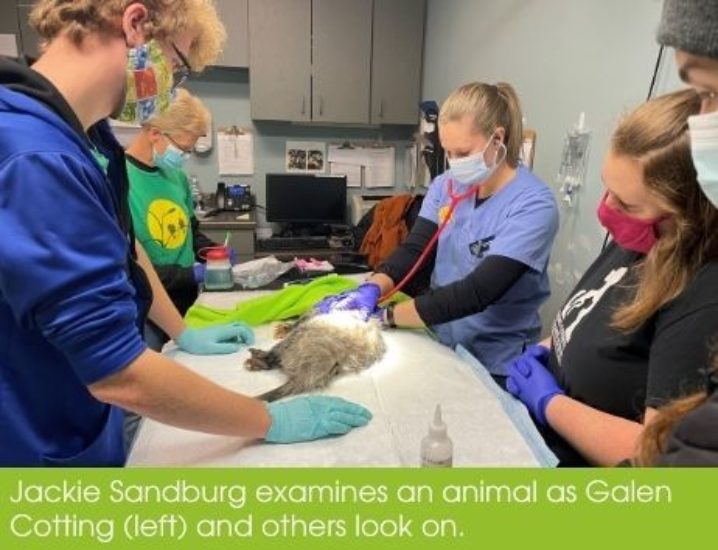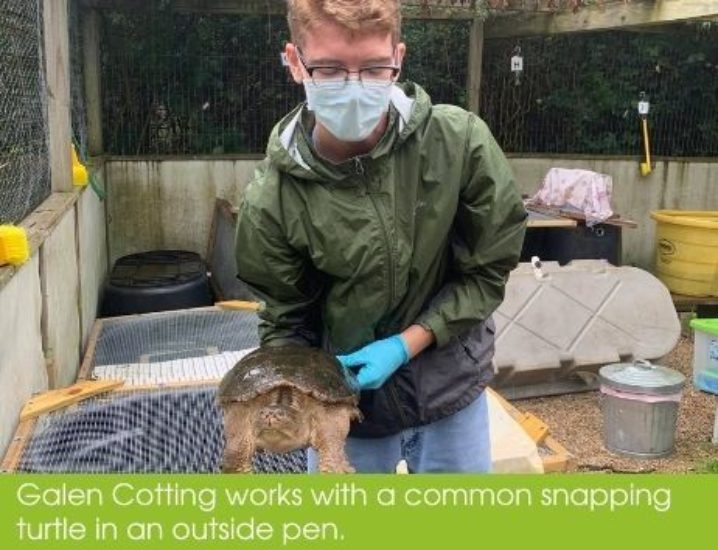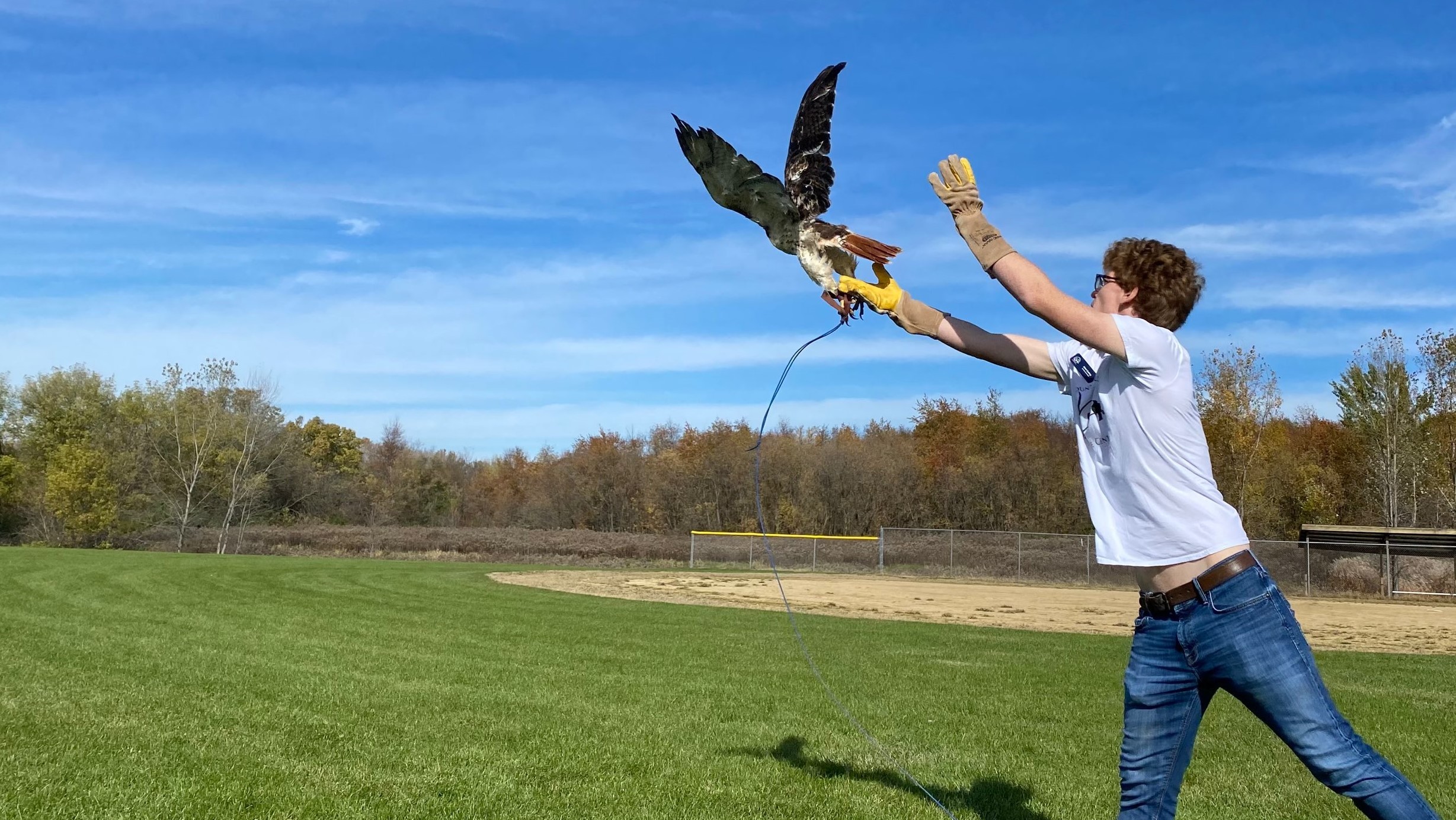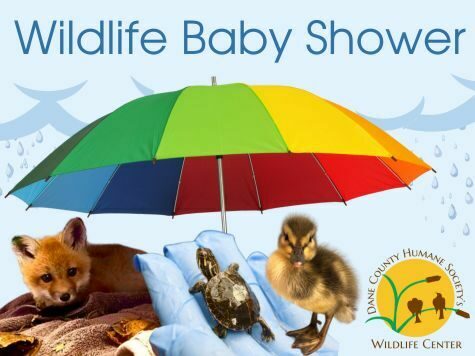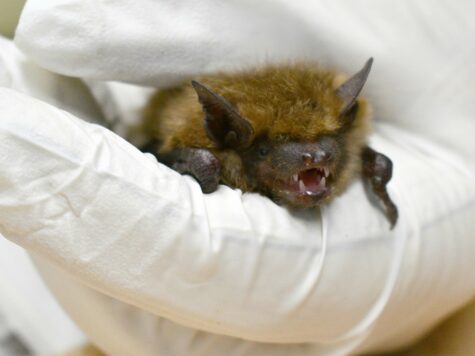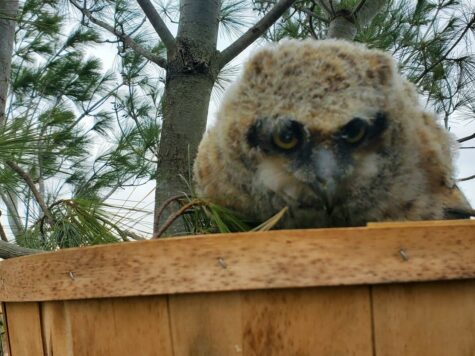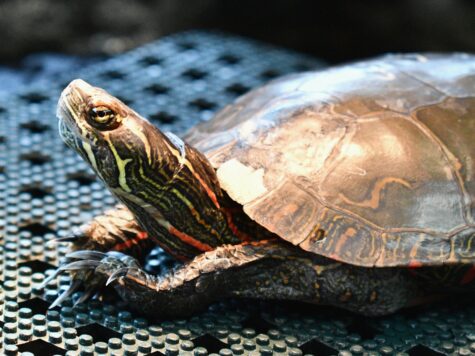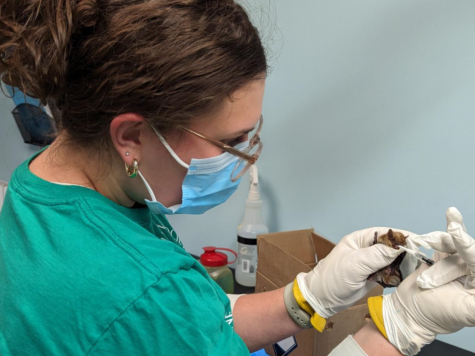A great horned owl was found on the ground by a member of the public walking his dog in a nearby park on November 23, 2016. Nicki Leon, then an intern at DCHS’s Wildlife Center, was sent to contain the owl and bring it to the Wildlife Center. Staff suspected the owl had suffered head trauma that impaired its coordination, and they rehabilitated the owl until it was able to be released about a month later.
“It was the first time I saw the whole rehabilitation process through from rescue to release,” says Nicki. “That case solidified my passion for pursuing wildlife rehabilitation as a career and I am so grateful that the Werndli Apprenticeship allowed me the opportunity to follow that dream.”
Through the support of the Werndli Charitable Trust, DCHS’s Wildlife Center offers a paid 12-month full-time wildlife rehabilitation apprenticeship that includes personalized training from several licensed wildlife rehabilitation staff and sponsorship for future licensing. The program’s goal is for an apprentice to achieve all skills necessary to gain a basic wildlife rehabilitation permit by the end of the term.
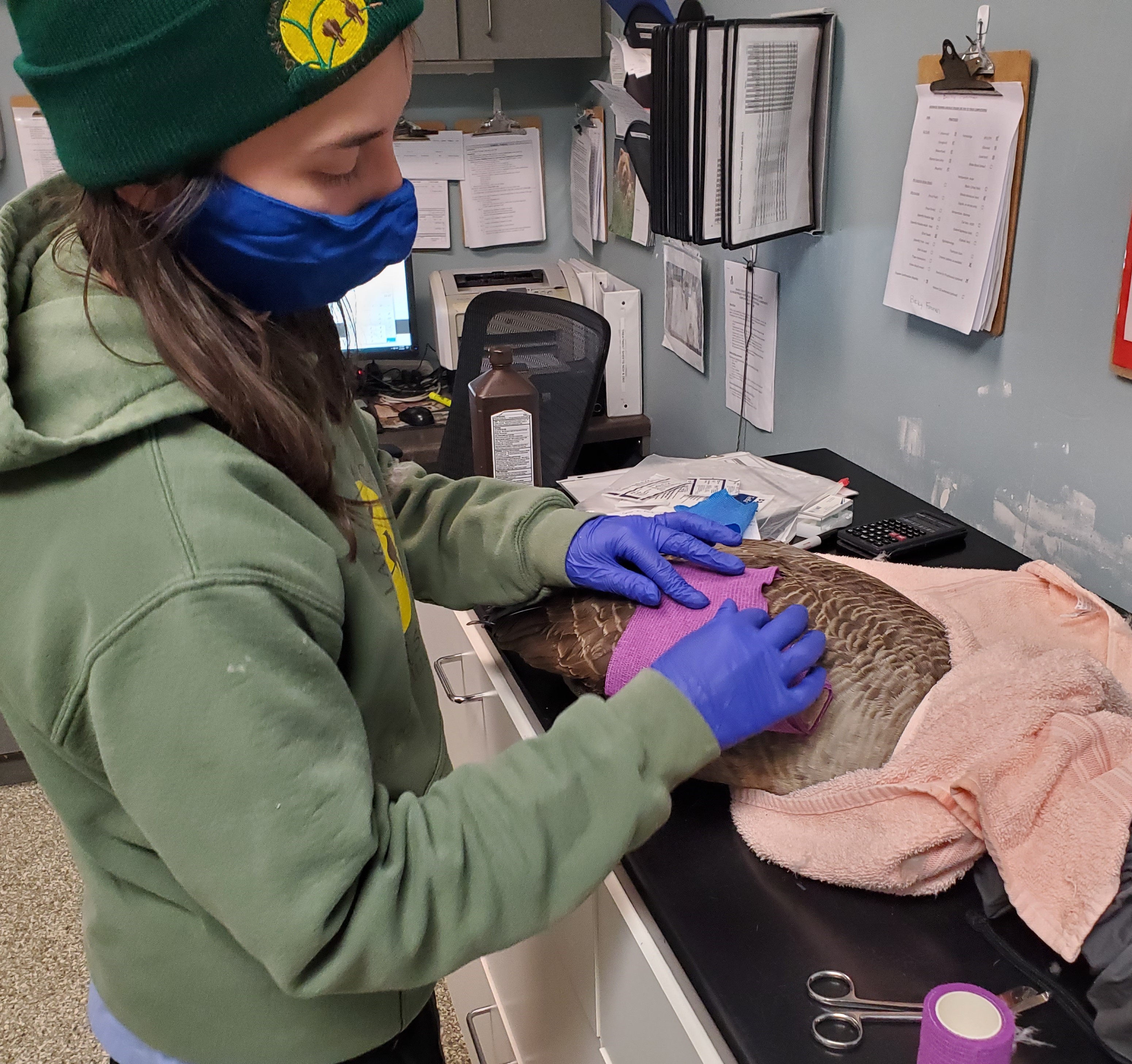
DCHS’s Wildlife Center receives no federal or state funding and is not associated with any state or federal agencies, though it must follow regulations set by those groups. Instead, the Wildlife Center solely relies on community support and independent donations to fund operations and programs like the Werndli Apprenticeship and stipends for over twenty annual internship positions.
“Being an intern here at DCHS was the launching point of my own career in wildlife rehabilitation,” recalls Wildlife Training Supervisor Jackie Sandberg, who has managed DCHS wildlife internships and apprenticeships since 2011, a year after she completed her own fall-semester internship at the Wildlife Center. “The opportunity was life-changing for me, and it truly merged my passions for helping animals and wildlife through conservation efforts.”
Since then, Jackie’s goal has been to “pay-it-forward” by teaching future interns and apprentices to work with wildlife, similar to how she was mentored by experts in the beginning. Even when Jackie was an intern, all hours worked were considered “volunteer” time. “Now, we have grown the wildlife program and budgeted to provide a small stipend for all annual wildlife internships,” Jackie says.
Funding for these programs helps students and trainees support themselves financially during their training periods, as many are often paying for school or working part-time jobs simultaneously to make ends meet. “We want people to make the most of their time here at DCHS, learning from and networking with professionals in the wildlife and veterinary fields,” Jackie adds.
Stipends to support interns during the spring/fall term are just over $750, while summer terms are over $1,200. Interested in sponsoring the education of an intern and helping grow the number of wildlife rehabilitators in Wisconsin?
Nicki became the first Werndli Apprentice in the fall of 2019, but a few months into the apprenticeship, her experience was changed by the COVID-19 pandemic.
“Although my experience didn't play out exactly how we all envisioned, I learned a lot from being able to adapt to limited staffing, adjust to changing protocols, and see how our community came together to help animals even in the wake of adversity,” Nicki says. “I got the added bonus of being taught emergency planning and efficiency during difficult and novel times. That challenge turned out to be a great opportunity for me, and I am grateful for gaining those skills.”
Galen Cotting, who had previously interned at the Wildlife Center, applied for the 2020 apprenticeship because he wanted to learn what it takes to be a wildlife rehabilitator. And learn he did, about various wound care and management techniques, intake and examination procedures, and how to help the public with wildlife situations. The program also helped Galen grow more confident in performing wildlife exams.
His favorite part, though, was helping train summer interns and volunteers. “I enjoyed teaching and sharing my passion for wildlife with them and helping nurture their own love for animals,” he says.
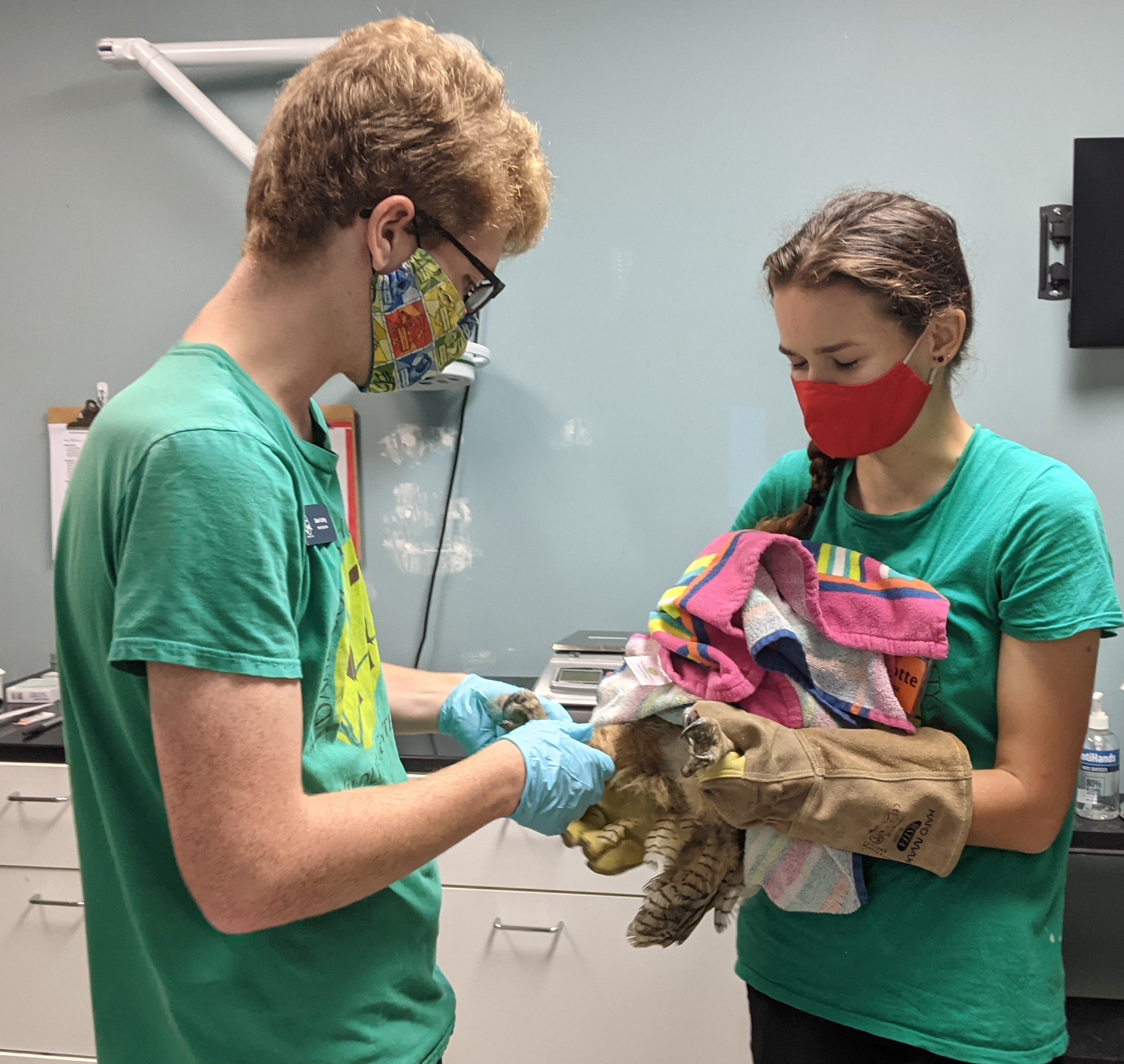
As for Nicki, “My favorite part of the apprenticeship was getting to learn how a large and intricate volunteer program operates. It's a crucial piece to running a wildlife rehabilitation organization.”
To top off their education, over this past summer, Galen and Nicki got to meet the donors who funded their apprenticeships for the first time since its inception. During the meeting with representatives from the Werndli Charitable Trust, Galen, Nicki, and Jackie released a group of American robins, common grackles, and one special red-bellied woodpecker. All of the birds had been brought up from nestlings or hatchling ages in rehabilitation.
“Hosting releases like this gives us a way to connect people with wildlife and to celebrate a culture of successful philanthropy,” says Jackie. “Donors meet the professionals that perform this life-saving work and see the animals that were cared for find their freedom.”
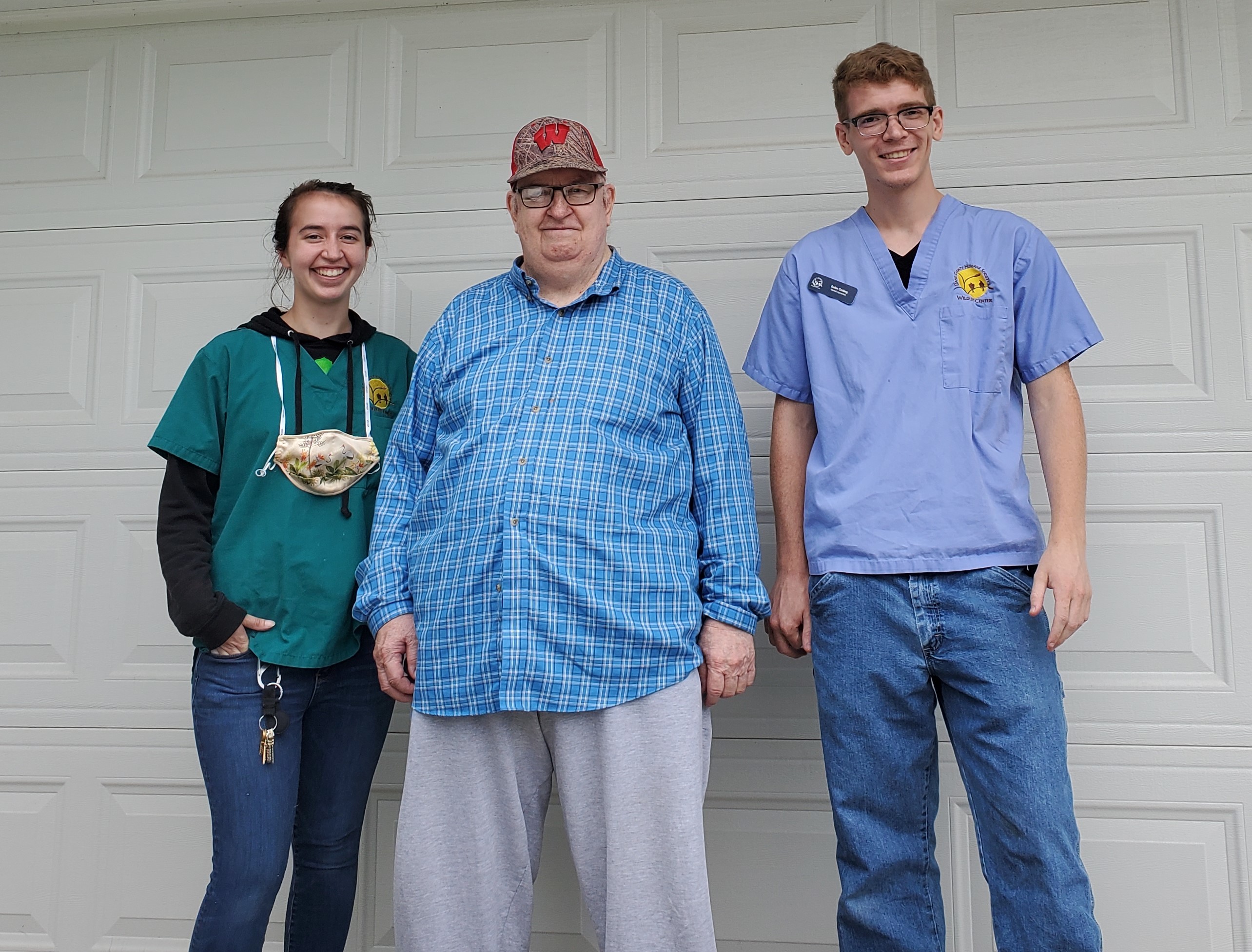
“This apprenticeship has been one of the best experiences in my life,” says Galen. “I have always been incredibly passionate about wildlife, and this apprenticeship helped me realize just how much I wanted to pursue wildlife medicine as a career. Thank you so much to everyone involved with the position, and I hope it continues on for many more years!”
Nicki adds, “This apprenticeship is going to greatly impact the wildlife rehabilitation field as is continues. I hope this inspires others to fund more training positions like this, so that more of the state of Wisconsin has easier access to well-trained rehabilitators, as well as increase the body of knowledge about wildlife. The demand for rehabilitators is ever-expanding.”
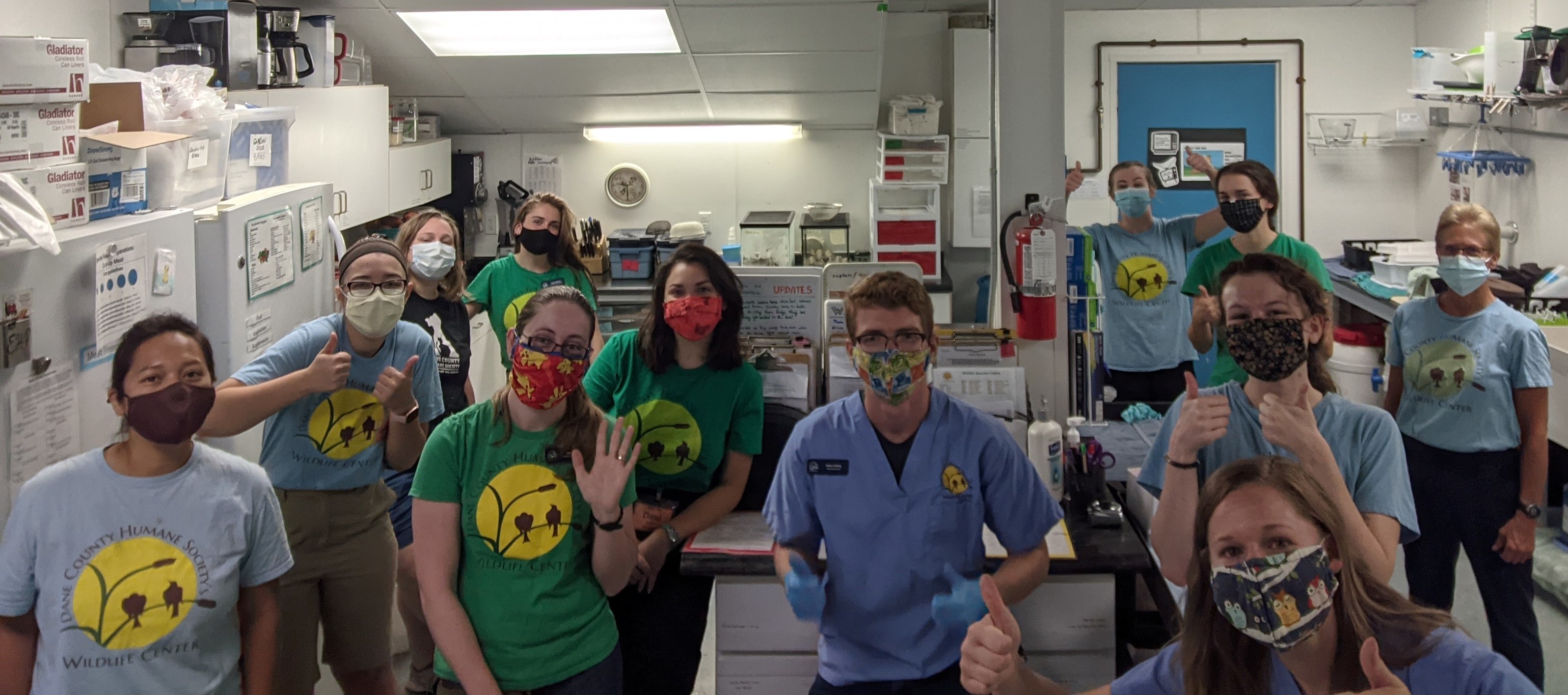
There aren’t many wildlife rehabilitators that are trained, experienced, or available in Wisconsin, with many counties absent of any kind of wildlife assistance, besides Department of Natural Resources wardens or biologists, Jackie explains. This means thousands of sick, injured, and orphaned wild animals are left alone and untreated every year. To combat that, Jackie says, “We want and need to be a local resource, not only for helping individual patients, but also for training the next generation of wildlife rehabilitators through these internships and apprenticeships. We need to continue increasing the number of people who are licensed to practice wildlife rehabilitation in our state, and this is one step forward towards achieving that goal.”
Thanks to another generous donation from the Werndli Charitable Trust, we have recently welcomed Taylor Alexander to the team as our third apprentice for 2021-2022.
Galen’s apprenticeship recently came to a close, and he says his immediate plans are to work as a veterinary assistant and continue volunteering at the Wildlife Center. Galen also applied to several different schools around the U.S. to pursue a career in veterinary medicine. After completing veterinary school, he hopes to work as a wildlife veterinarian and eventually start his own wildlife center in an area of need.
As Nicki’s apprenticeship came to a close, a position opened up here at DCHS’s Wildlife Center. Nicki is now one of our full-time Licensed Wildlife Rehabilitators. Her next step is applying for her advanced license, and she will continue expanding her knowledge about various aspects of coordinating a wildlife center. Her dream is to one day run her own rehabilitation practice.
Learn more about DCHS’s Wildlife Center and the thousands of animals they care for each year.
